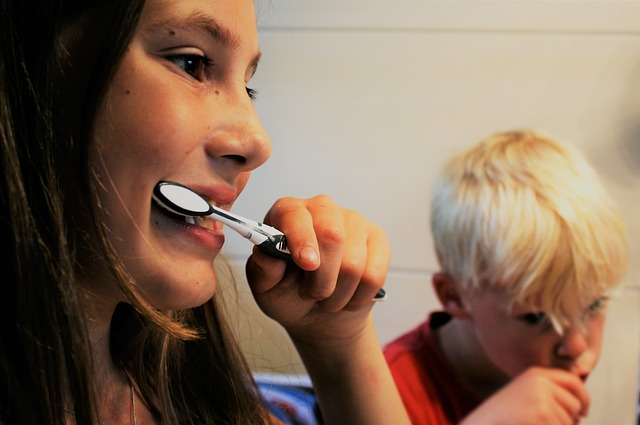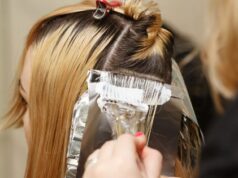We have to differentiate between different types of rinses, those that you can buy in the super, commercial or cosmetic type (Listerine, Colgate, etc) or those of pharmacy or therapeutic.


Mouthwashes help bad breath, reduce bacteria and today offer many solutions to possible dental problems. But we are talking about children, so the need for these rinses must be different.
What rinses are recommended for children?
Very simple, those prescribed by a specialist, only and exclusively. That is our recommendation. Orthodontic or disabled patients would be some examples of candidates to use rinses as a complement to brushing but never as a substitute.
However, “special” rinses for children in the market there are many, we recommend, however heavy it may seem, that before buying any, consult the dentist or pharmacist failing that.
Keep in mind that rinses are recommended after 6 years, which is when you can control not to swallow the liquid. Before that age, they are not recommended.
Here are some rinses that you can find and that helps to brush:
Pre-brushing: These rinses color the teeth so that the child sees what parts are being brushed and where they are “clumping.” It is a mouthwash without any other utility. They are plaque developers and usually motivate the child quite a bit since he sees where he has to brush more and better.
Post-brushing: can prevent tooth decay, bacteria, bad smell, among others.
What you should keep in mind is that no mouthwash, neither of children nor adults, should contain alcohol and yes fluoride and other additives such as xylitol or vitamins such as panthenol.
And in this case, we recommend visiting kids dentists before you buy any mouthwash for your kid.
Mouthwash for children:
If you are thinking of offering a rinse to your kids, we recommend that you first consult kids dental care beforehand: a pediatric dentist or hygienist and that they advise you.
Mouthwash is safe to use?
Brushing teeth daily is essential, but not the use of mouthwashes, according to some experts. The use of mouthwashes has been gaining adherents for years as a solution against tooth decay, plaque or bacteria that cause bad breath.
Now, experts like Peter Arsenault, from the Tufts University School of Dental Medicine, say its use has benefits for dental health, but it is not essential.
According to The Wall Street Journal, these liquids have little effect on the bacteria that cause bad breath. Mouthwashes are divided into two types: cosmetic and therapeutic.
The former “cannot end bad breath because they do not kill the bacteria and do not chemically deactivate the compounds that cause bad breath,” he explained.
Therapeutics, which is usually sold by prescription and after an examination by a specialist, have greater capacity against dental plaque and can be effective against gingivitis and the appearance of caries. However, they must be used without excess and taking into account a series of issues.
With or without alcohol?
Some dentists, such as Judith Jones from Boston University, recommend mouthwashes without alcohol, since those that do contain it can cause excessive dryness in the mouth, and such dryness can cause an increase in bacterial activity.
Also, he indicates, alcohol itself has no antiseptic ability in the mouth. Alcohol is used as a solvent for the active ingredients of elixirs and has preservative properties.
On the other hand, it has a caustic effect, destroys tissues in the oral cavity. And also, in high concentrations can cause oral pain. Its use is especially contraindicated in children as well as inpatients, people who have received treatments with radiation in the head or neck and all those who, due to their disease, have altered or compromised the immune system.
A mouthwash is considered more correct the closer to the pH of the oral cavity, which is around 7 (below 5.5 the enamel of the teeth is demineralized and its structure begins to break down). As all rinses are acidic, they should preferably be used right after brushing, since at that time the pH of the mouth is slightly alkaline and these elixirs help to balance it.
So, it is always advisable to visit kids dentist near me to get more information and guidance on this subject.









